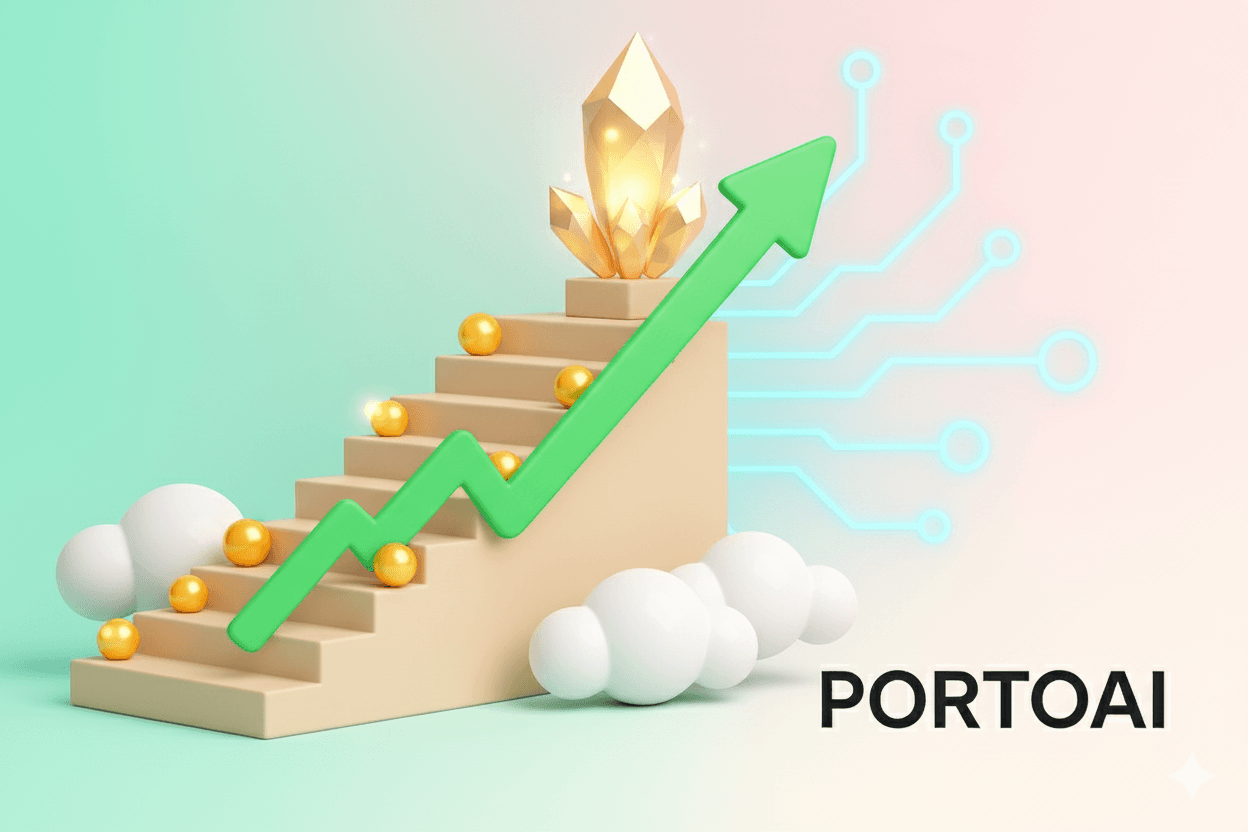What is Private Equity? A Sophisticated Investor's Guide

Venkateshwar Jambula
Lead Market Researcher
4 min read
•Published on September 9, 2024
•What is Private Equity? A Sophisticated Investor's Guide
In the evolving landscape of financial markets, private equity represents a distinct and powerful asset class that sophisticated investors leverage for significant alpha generation. Beyond the liquidity of public exchanges, private equity offers access to growth-stage and established private companies, providing both patient capital and strategic expertise to unlock substantial value. For discerning investors seeking a competitive edge, understanding the mechanics and strategic deployment of private equity is paramount.
This guide delves into the core of private equity, exploring its structure, the diverse roles of its participants, and its impact, particularly within dynamic economies like India's. We will illuminate how this asset class, when approached with disciplined analysis, can be a cornerstone of a diversified and high-performing investment portfolio.
Understanding the Essence of Private Equity
Private equity refers to investment capital not listed on public exchanges. It is a sophisticated investment strategy where institutional investors and accredited individuals deploy substantial capital into private companies. These investments are typically made with the objective of improving the company's operations, financial structure, or management, with the ultimate goal of generating attractive long-term returns upon exit.
Key characteristics of private equity investments include:
- Illiquidity: Investments are typically locked up for extended periods, often 5-10 years or more.
- Active Management: Private equity firms often take an active role in portfolio companies, driving strategic and operational improvements.
- High Capital Requirements: Significant capital is usually required for direct investment or through fund commitments.
- Potential for High Returns: The illiquidity, active management, and specialized nature can lead to outsized returns compared to public markets.
Private equity is a critical component for institutional investors, including pension funds, endowments, and sovereign wealth funds, as well as for high-net-worth individuals seeking portfolio diversification and enhanced returns. It fuels expansion, enables strategic acquisitions, and drives innovation within the private sector, contributing to broader economic development.
Types of Private Equity Investors and Strategies
Private equity encompasses a spectrum of strategies, each tailored to specific investment profiles and company stages:
Venture Capital (VC)
- Focus: Early-stage companies with disruptive potential and high scalability.
- Role: Provides seed funding, Series A, B, C rounds, along with strategic guidance and operational support to nascent businesses.
- Objective: To nurture startups into market leaders, realizing returns through IPOs or strategic acquisitions.
Growth Capital
- Focus: More mature companies requiring capital to expand operations, enter new markets, or fund significant acquisitions.
- Role: Offers capital in exchange for a minority stake, enabling growth without a change in control.
- Objective: To accelerate revenue and profit growth for established businesses.
Buyout Funds
- Focus: Established companies, often underperforming or with undervalued assets, where control can be gained.
- Role: Acquires a controlling interest, often using leverage, to implement operational efficiencies, strategic repositioning, or financial restructuring.
- Objective: To enhance enterprise value through active management and operational improvements before an exit.
Specialized Funds
- Focus: Niche sectors such as real estate, infrastructure, technology, or healthcare.
- Role: Leverages deep industry expertise to identify and capitalize on specific market opportunities.
- Objective: To generate returns by applying specialized knowledge to sector-specific investments.
The Mechanics of Private Equity Investment
The private equity lifecycle typically involves several distinct phases:
- Fundraising: Private equity firms (General Partners or GPs) raise capital from institutional investors and high-net-worth individuals (Limited Partners or LPs) to form a dedicated fund.
- Investment Sourcing & Due Diligence: GPs identify potential target companies, conduct rigorous due diligence covering financial, operational, and market aspects, and negotiate investment terms.
- Value Creation: Post-investment, the GP actively works with the portfolio company's management to implement strategic initiatives, optimize operations, and improve financial performance. This is where PortoAI's Market Lens can provide critical data synthesis and signal identification to support such strategic decisions.
- Exit: Once the investment thesis is realized and the company's value has been enhanced, the GP exits the investment through various means, such as an Initial Public Offering (IPO), a strategic sale to another company, or a secondary buyout.
- Distribution: Profits generated from the exit are distributed to the LPs, after the GP takes its agreed-upon management fees and carried interest.
Private Equity Dynamics in India
India's economic trajectory presents a compelling environment for private equity. Despite historical challenges, such as a relatively smaller pool of public-ready companies compared to other emerging markets and periods of economic deceleration, private equity has proven to be a vital catalyst for growth.
- Growth Engine: Private equity-backed companies in India have demonstrated superior revenue and profit growth compared to their publicly listed counterparts, underscoring the value of strategic capital and management.
- Capital Infusion: It serves as a crucial source of equity capital, enabling companies to scale, innovate, and achieve market leadership.
- Ecosystem Support: Leading Indian private equity firms offer comprehensive support, including fundraising advisory, regulatory navigation, risk management frameworks, and corporate finance expertise. Tools like PortoAI's risk console can be instrumental in building robust risk management strategies for these companies.
Prominent firms like Kotak Private Equity, Chrys Capital, Sequoia Capital India, and Blackstone India are active participants, driving significant investment activity across various sectors.
Conclusion
Private equity represents a sophisticated and potent investment avenue for those seeking to participate in the growth of private enterprises. It demands a long-term perspective, a tolerance for illiquidity, and a deep understanding of value creation strategies. For sophisticated investors, it offers a means to diversify portfolios, access unique growth opportunities, and potentially achieve substantial returns.
As India's economy continues its dynamic expansion, private equity will undoubtedly remain a pivotal force in fostering entrepreneurship, driving job creation, and contributing to sustainable economic development. Leveraging advanced analytical platforms like PortoAI is essential for navigating this complex asset class and identifying the most promising opportunities with data-driven conviction.
---* Disclaimer: This content is for educational purposes only and does not constitute investment advice. Investing in private equity involves significant risks, including the potential loss of principal. Always conduct thorough due diligence and consult with a qualified financial advisor before making any investment decisions.
Blog
Investment Insights and Tips
Explore our latest investment strategies and insights.

Stocks
Master Investment Psychology: Control Emotions for Smarter Stock Decisions
The Psychology of Stock Investment: Understanding Emotions That Affect Investment Decisions A stock market is a funny place – both the seller and buye...
Venkateshwar Jambula
November 7, 2024
•4 min read

Stocks
Power Grid India Stock: Analyzing PGCIL's Price Movements & Future
The Rise and Fall: Unraveling the Power Grid Corporation of India Stock Price The Power Grid Corporation of India Stock Price (PGCIL) has experienced ...
Venkateshwar Jambula
November 6, 2024
•10 min read

Stocks
Are Multibagger Stocks Still Possible in 2025? Your AI Guide
These 6 Multibagger Stocks Exploded in 2025 — Is Your Portfolio Still in 2022? Till June 2025, the benchmark Sensex has risen by around 4%, reflecting...
Venkateshwar Jambula
November 5, 2024
•11 min read

Stocks
Top 5 Indian Growth Stocks & Sectors for 2025: AI-Driven Insights
Top 5 Best Growth Stocks in India & Sectors to Watch in 2025 You see the market correction in late 2024 and early 2025 was driven by weak economic...
Venkateshwar Jambula
November 4, 2024
•9 min read